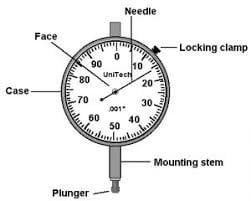Turbos have become a regular addition to both economy and performance vehicles. Like all other parts, their malfunction might cause further damage to the vehicle if not appropriately treated. So, can turbo failure cause engine damage actually?
Sooner or later, all cars face difficulties maintaining optimal performance because parts are susceptible to wear and tear. Additionally, bad driving habits of the owners, as well as using low-quality fuel, can lead to malfunctions faster as the lifespan of different parts shortens.
The turbocharger is no different, and the article will discuss the turbocharger failure and its impact on the engine.

Can Turbo Failure Cause Engine Damage?
The turbocharger creates additional energy for the car by utilizing the exhaust gases from the system. It is a device that transforms the heat of the exhaust gases into energy before they are released. Depending on the capacity of the turbocharger and the car’s specifications, it can increase the power by up to 300 hp and, in some cases, even more.
As a powerful device that’s part of the engine’s forced induction system, a potential failure of the turbo can lead to engine damage. That’s why it’s important to be vigilant for any signs of problems that could escalate to the point of causing harm to the engine. Regular maintenance checks remain the best way to prevent unexpected turbo failures and preserve the longevity of the vehicle’s engine.
If you’re on the lookout for a turbocharger for your car, look no further than Goldfarb & Associates. There, you’ll find the best turbochargers online, with a broad selection of models and affordable pricing. You can choose between buying a new or a used turbo, while you can also opt for a rebuilt diesel turbocharger that will cater to the specific demands of your engine.
So, here are all the ways of how can a turbo mess up your engine:
1. Oil contamination
Oil contamination happens when oil from the turbocharger enters the combustion chamber. It can lead to carbon buildup on the valves, the pistons, and the cylinder walls. At first, this can result in reduced compression and increased oil consumption, while eventually, it can lead to engine damage, such as piston ring wear and scoring of the cylinder.
The turbocharger uses oil for lubrication, and a failure can lead to it mixing with the intake or exhaust systems. Oil can leak from the turbocharger’s system if its seals and bearings fail, usually due to wear and tear. If the oil leaks and finds its way to the intake system, it will lead to the air-fuel mixture containing oil, resulting in bad combustion.

2. Overheating
A failed turbo could restrict the regular airflow through the engine, leading to higher gas temperatures. The exhaust gas temperatures need a steady temperature, or it can lead to overheating of various components like the exhaust valves, pistons, and cylinder heads.
The primary function of the turbocharger is to compress air and force it into the combustion chamber. A turbo failure can lead to too much or too little air in the chamber, leading to overheating. The heat can also negatively impact the exhaust manifold, which collects the exhaust gases from the cylinders.
A warped or cracked exhaust manifold will increase emissions and reduce engine efficiency. In the long term, it will reduce the longevity of the engine.
3. Explosion
It’s not uncommon for turbochargers to explode, especially lower-quality ones from less reputable brands. When the turbo produces more boost pressure than the engine can handle, it can cause the turbocharger to explode. So, it may lead to internal engine damage as scattered metal fragments and debris can puncture various engine components.
The blown turbo engine damage can vary depending on the explosion’s severity and the engine’s design. The vehicle’s safety and engine protection system are important in reducing the damage from possible turbo failure and explosion.
Foreign objects such as debris and dust can also disrupt the balance of the compressor and turbine wheels, leading to an explosion. When a turbocharger explodes, it will lead to an immediate loss of power for a vehicle that’s in motion. Regular maintenance checks will help prevent such situations and ensure a safe and effective driving experience.
4. Reduced engine longevity
Turbo malfunction can lead to a shorter engine lifespan as it can speed up the wear and tear process of crucial components. The parts most susceptible to suffering damage as a result of turbo failure are the pistons and cylinders. The bearings, valves, gaskets, and seals are also fairly prone to damage from friction, heat, and stress while operating with a malfunctioning turbocharger.

Preventing Turbocharger Failure
Regular maintenance like oil changes and air filter replacement is crucial to preventing engine-related problems. Inspection of various components, which includes the turbocharger for leaks and wear, will prevent turbo failure and possible turbo-related engine damages.
Moreover, the vehicle’s cooling system has to be functioning properly, as overheating is one of the biggest threats to the engine’s proper functioning. By using a boost pressure gauge, monitor the boost pressure frequently to avoid overboosting of the engine, which may result in an explosion.
Finally, using a proper driving technique will go a long way in extending the lifespan of both your turbocharger and your engine. Allow the engine to warm up before subjecting it to heavy loads or high speeds. The turbocharger is best utilized at higher RPM levels, and cold starts can stress the device.
Summary
Can turbo failure cause engine damage? We have discussed the engine damage due to turbocharger failure and some methods for preventing such an occurrence.
In most cases, a failing turbocharger can cause oil contamination and overheating. However, in some cases, it can lead to more dangerous situations like turbocharger explosions. At the very least, a failing turbocharger will reduce the engine’s longevity.
The most effective step to prevent engine damage from the turbocharger is to perform regular maintenance checks and be vigilant for various signs of turbo failure. A proper driving technique, like allowing your engine to warm up before exerting it to heavier loads, will prolong its lifespan and that of the turbocharger.




